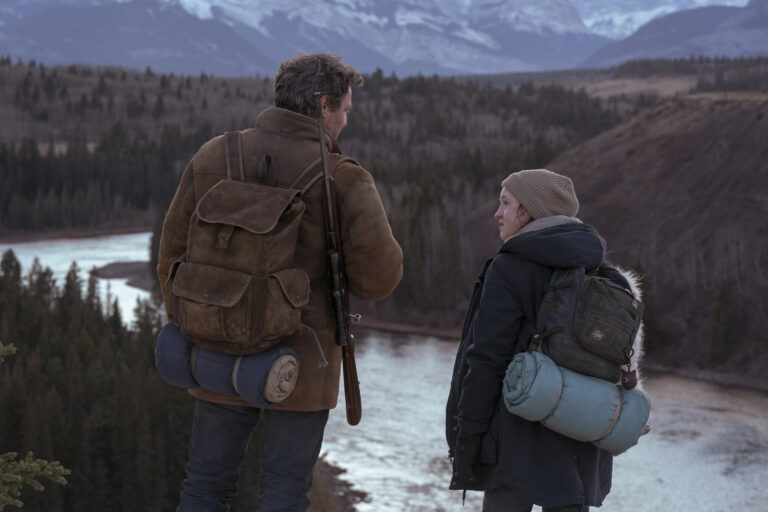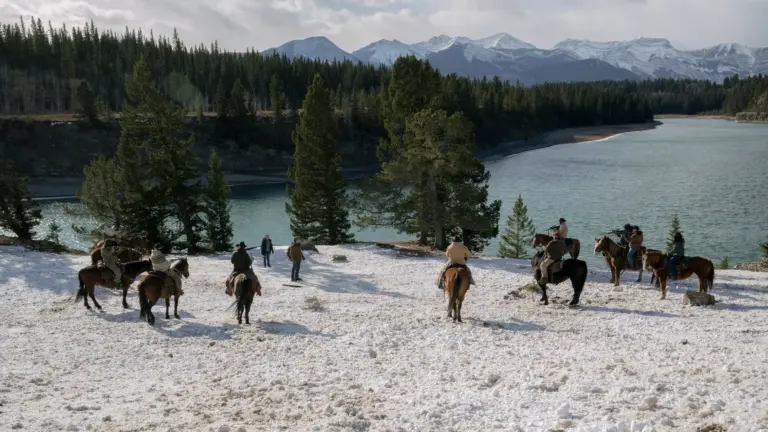Let’s talk “woke.” Not the kind that comes with a double-shot espresso, but the kind people can’t stop debating online, especially when it comes to The Last of Us. Whether you cheer for diversity or roll your eyes at every Twitter storm, you can’t deny one thing: this show got folks talking. It fired up TikTok, took over comment sections, and pretty much set the Reddit hivemind ablaze.
But how “woke” is it, really? Let’s throw on our gas masks and trudge through the wilds of internet reactions, juicy facts, and social buzz to see what the fuss is truly about.
Woke-ometer: The Diversity Breakdown
First up, let’s clear up this: “The Last of Us” didn’t just trip and fall face-first into diversity; it made some very intentional choices. Right out the gate, viewers noticed fresh faces and reimagined characters.
- Bella Ramsey stepped into Ellie’s not-so-clean sneakers. While her performance has won critical acclaim, she doesn’t look identical to her video game counterpart, and that’s kept some fans awake at night.
- Nico Parker—yes, that’s Thandiwe Newton’s daughter – played Joel’s daughter Sarah. In the game? Sarah’s white. On TV? Not so much. Cue internet discourse: some praise, some side-eyeing.
- Then there’s Episode 3. Bill and Frank’s love story wasn’t an afterthought – it was a full-on, pull-at-the-heartstrings centerpiece. The internet instantly exploded, with Forbes calling it “one of the best and most moving hours of TV” ([Forbes](https://www.forbes.com/sites/erikkain/2023/01/30/did-the-last-of-us-just-go-woke/?utm_source=openai)). But, as usual, some people praised the bold storytelling, and others grumbled about it breaking from the original.
But wait! Are we seeing performative “checkbox diversity,” or did the showrunners have bigger plans than just spinning headlines?
Critical Response: Applaud or Eye-roll?
The verdict is in – and it’s complicated. Critics mostly lined up to hand out praise like Halloween candy, but not every viewer felt the love.
- On Rotten Tomatoes, the first season holds a spectacular 96% among critics. Audience scores? Those are a few points lower, and that’s where it gets interesting: social media platforms, especially Reddit, are havens for spirited debate.
- Outlets like Salon highlighted how the HBO series “reimagines” video game culture and representation in a way that challenges old tropes ([Salon](https://www.salon.com/2023/01/02/the-last-of-us-hbo-video-game-culture/?utm_source=openai)).
Yet some viewers think the show occasionally sacrifices momentum for social messages. Did Ellie’s and Riley’s dynamic in Episode 7 feel forced or was it beautifully authentic? Depends who you ask (and how much you care about Joel’s emotional stability).
The Reddit Deep Dive: Nerves Exposed
Now, Reddit is where “The Last of Us” goes full zombie apocalypse. Subreddits like r/Thelastofus and r/television saw thousands of upvotes, tears, memes, and, yes, some rage.
- Threads about Episode 3 still get fresh comments months later. Some users admit that Nick Offerman and Murray Bartlett should both win all the trophies. Others grumble, “This was just HBO being woke”—and pick apart the supposed “agendas.”
- When the castings dropped, debates about “race swaps” and “forced representation” cropped up immediately. And while critics by and large loved the cast, there’s no sugarcoating it: many OG gamers felt disoriented, a minority claimed to have tuned out entirely.
- A recurring Reddit defense: “Actually, the game was always diverse – all they did was show what was there!” Some die-hard fans dropped deep-dive posts listing minor character details from the original script, pointing out that Bill was always canonically gay. HBO just cranked the volume to 11.
You can’t please everyone, and judging by Reddit’s dozens of five-alarm threads, that’s definitely true here.
The Showrunners’ Take: Intent and Artistic License
Neil Druckmann and Craig Mazin (those guys in charge) have never tiptoed around their decisions. They repeatedly stated they wanted the show to feel “authentic” and to reflect the “world as it is,” not just as nostalgic fans might remember.
In interviews, Mazin made it clear: “We’re not inventing new identities for shock value. We’re expanding stories that were already there.” And when Forbes ran with the headline “Did The Last Of Us Just Go Woke?”, Mazin doubled down, describing Bill and Frank’s episode as “one hundred percent true to the spirit of the original material.” ([Forbes](https://www.forbes.com/sites/erikkain/2023/01/30/did-the-last-of-us-just-go-woke/?utm_source=openai))
They wanted viewers to “see themselves on screen,” not just because it looks good on a press release but because that’s what storytelling in 2025 looks like. Whether they nailed it or went too far? That’s a conversation still raging on most platforms.
Nuances from Critics and Commentators
Some critics admit, though: as the season progresses, the social commentary is almost always in service to the story, not at its expense. “The Last of Us,” writes Salon, is “the antithesis of video game adaptation stereotypes – thoughtful, nuanced, bloody when it needs to be, but solidly rooted in character” ([Salon](https://www.salon.com/2023/01/02/the-last-of-us-hbo-video-game-culture/?utm_source=openai)).
And reviewers keep circling back to the dazzling writing, not just the talking points. The romance, the horror, the tension, even the laughs – these elements aren’t sidelined by “woke” subplots. Instead, they’re part and parcel of what keeps viewers glued to the screen (and occasionally screaming at their TV).
But it’s not all sunshine and applause. Some critics, including posts on Primetimer, argue that a few episodes wander from the main plot to showcase “politically correct” narratives, risking the flow of the apocalyptic drama ([Primetimer](https://www.primetimer.com/features/the-last-of-us-episode-3-queer-love-story-condescending?utm_source=openai)). Did these derail the pacing or enrich the fabric of the show? Again – no unanimous verdict there.
The Puzzle Pieces Fans Can’t Stop Rearranging
So, what do viewers care most about? Let’s break it down:
- Faithfulness to Source: Some wanted a carbon-copy of the game, characters’ skin tones and all. When they didn’t get it? Enter the memes, think pieces, and a few rage-quits.
- Character Depth: Even in the most “controversial” episodes, performances by Bella Ramsey, Pedro Pascal, Nick Offerman, and Murray Bartlett earned high marks. Those moments, according to many, are a net positive – even for non-gamers.
- Representation Matters: For many, it’s not just about “wokeness” but feeling seen. Reddit threads reveal viewers, especially LGBTQ+ fans, grateful to finally see relationships and characters that mirror their own experiences.
Yet, some warn the show risks becoming a “symbol war” versus a narrative about survival and loss. It’s a delicate balance – and the showrunners know it.
Buzz Beyond Reddit: Viewer Polls, Social Media Reactions, and Ratings
Rotten Tomatoes, Metacritic, and other aggregate sites deliver mostly glowing reviews. However, scrolling through user reviews on IMDb or Twitter reveals a spectrum. Some brand episodes as “masterpieces in representation.” Others? “Unnecessary sidetracks.” Audience split, in numbers:
- Rotten Tomatoes: Critics at 96%, audience only a smidge behind.
- IMDb: Episodes 1 and 3 both scored above 9, but the most “woke” episode (3) got review-bombed upon release, only to rebound as more viewers spoke up for its merits.
Tweets from the show’s official handle (and cast members) often highlight inclusion and kindness – leaning into what they see as the story’s heart. And with awards talk swirling, it’s clear this direction found at least some passionate success.
So… How “Woke” Are We Talking?
There’s no “woke score” for apocalypse survivors, but here’s what we can say:
- The showrunners doubled down on diverse casting and stories.
- Critics and a large chunk of viewers say this makes “The Last of Us” richer, braver, and more real.
- Detractors warn about sacrificing “story” at the altar of “representation,” but evidence suggests the drama, scares, and emotional gut-punches haven’t lost their edge.
If “woke” means tuning in for heartfelt queer stories, a realistic mishmash of humanity, and complex heroes who break molds – then, sure, “The Last of Us” is woke. But it’s also one of the most gripping TV stories of recent years, full stop.




